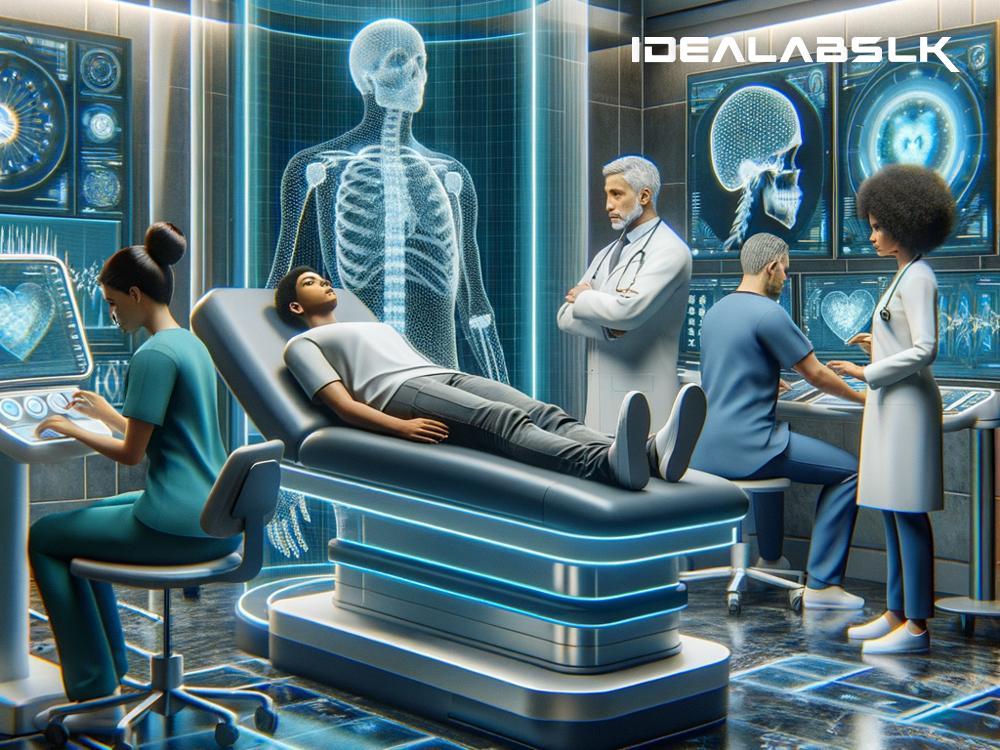The Future of Medicine: How Artificial Intelligence Will Change Healthcare in the Next 10 Years
Think about a world where your doctor can predict a health issue you might face in the future and start preventing it today. Or imagine going to a hospital where robots assist in surgeries, making them faster and safer. This might sound like something from a science fiction movie, but it's closer to reality than you might think, thanks to Artificial Intelligence (AI).
In the next 10 years, AI is set to revolutionize healthcare, making it more efficient, personalized, and accessible. Here are some ways how:
1. Smarter Diagnosis and Treatment Plans
One of the most significant impacts AI will have is on diagnosing diseases and developing treatment plans. Currently, doctors rely on their knowledge and experience, but even the best doctor can't know or remember everything. AI, with its ability to analyze vast amounts of data quickly, can help here. It can look through thousands of case studies, medical records, and research papers in seconds to suggest a diagnosis or treatment that a doctor might not have considered.
2. Personalized Medicine
No two people are the same, so why should their treatment be? AI will make personalized medicine more of a reality. By analyzing data from a person's genetic makeup, lifestyle, and environment, AI can help create a treatment plan that is tailored just for them. This means better outcomes for patients and fewer side effects from treatments that might not work well for them.
3. Helping with Mental Health
Mental health is as crucial as physical health, but it's often harder to diagnose and treat. AI can change this by monitoring a person's behavior and speech patterns through their phone or wearable devices. This can help in identifying mental health issues like depression or anxiety early on, making treatment more effective.
4. Virtual Health Assistants
Imagine having a health assistant available 24/7, ready to answer any question you might have about your health, remind you to take your medicine, or even guide you through a simple medical check-up at home. AI-powered virtual health assistants will make this possible, reducing the need for unnecessary visits to the doctor and helping you manage your health better.
5. Improving Medical Training
Training to become a doctor is long and challenging. AI can make it easier by creating realistic simulations that future doctors can practice on, making them better prepared for real-life situations. It can also help in ongoing education for established doctors, keeping them up to date with the latest research and treatments.
6. Faster Drug Development
Developing new medicines is a costly and time-consuming process that can take up to a decade. AI can speed this up by running simulations to predict how new drugs will work, saving time, reducing costs, and getting treatments to patients who need them faster.
7. Making Healthcare More Accessible
Many parts of the world don't have enough healthcare facilities or professionals. AI can help bridge this gap by offering diagnostic and treatment advice through smartphones and computers, making healthcare more accessible to everyone, no matter where they are.
8. Enhancing Surgery
Robots assisted by AI are already being used in some surgeries to improve precision. In the next decade, we can expect this technology to advance further, making surgeries safer and recovery times shorter.
Challenges Ahead
While the future of AI in healthcare looks promising, there are also challenges to overcome. Privacy and security of patient data, ethical considerations, and the need for clear regulations are just some of the issues that need to be addressed. Moreover, the role of doctors will change, but it won't diminish. Instead, doctors will work alongside AI, using it as a tool to provide better care.
Conclusion
The next 10 years will see Artificial Intelligence transform healthcare in ways we can only begin to imagine. From making diagnoses more accurate and treatments more personalized to bringing healthcare to underserved areas, AI has the potential to make us healthier and ensure we lead longer, happier lives. The future of medicine is not just about AI replacing human doctors; it's about AI and humans working together to tackle the challenges of healthcare and move towards a brighter, healthier future for everyone.

